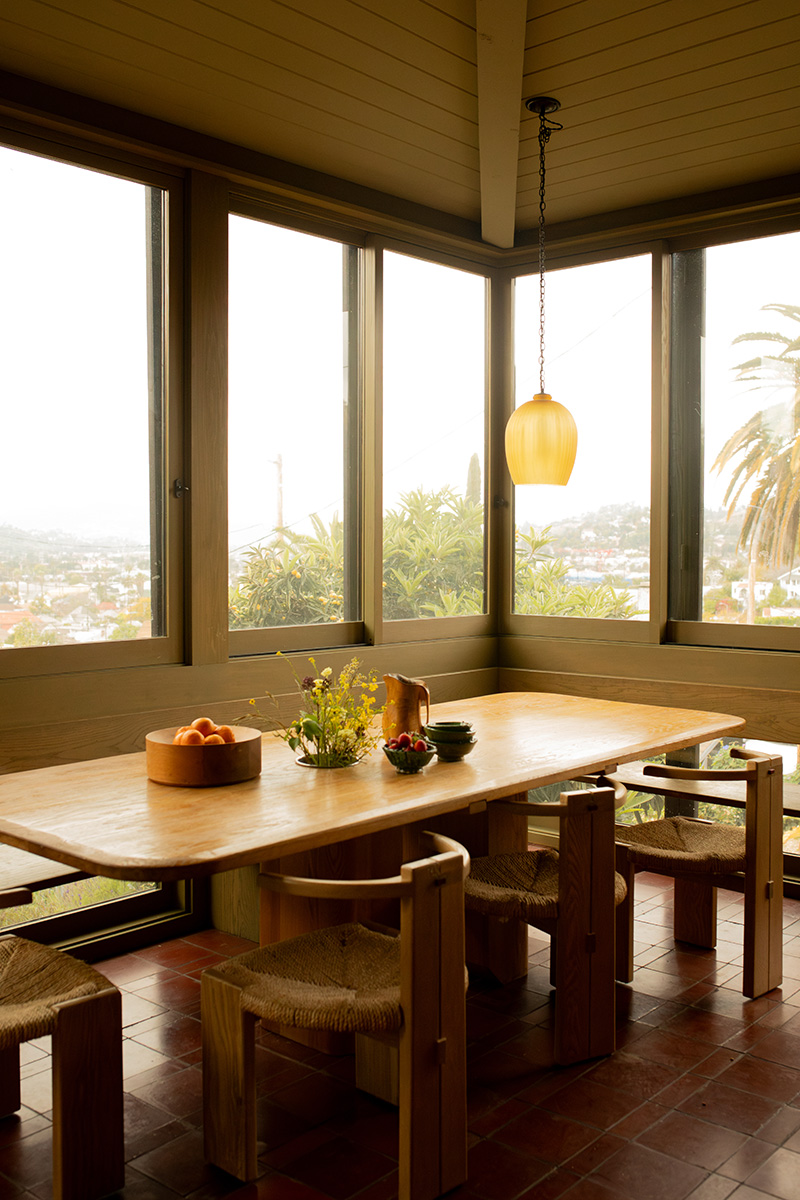
How A Closet Cleanout Can Change Your Life
After I graduated college, I brought home four huge boxes packed full of clothes. A week later, after much deliberation. I sent three of those boxes to a donation center. The sheer volume of stuff I cleared away was impressive, but what really stuck with me was the feeling afterward. I felt more like me.
Since I was experiencing a clear transition in my life, I was able to access a lot of intentionality. I reflected on the person I wanted to be after the cleanout as I touched each article of clothing: What did this future me feel like? What did she wear? And with a clear picture of her in my mind, it wasn’t just my biggest declutter ever but also my easiest.
“I reflected on the person I wanted to be after the cleanout as I touched each article of clothing: What did this future me feel like? What did she wear?“
A few other times in my adult life, I’ve done other cleanouts — moving across the country, moving abroad, the one time I got really into a spring cleaning challenge — but none felt as liberating as that post-undergrad declutter.
I’ve come to realize that when a closet cleanout is the physical manifestation of an internal transformation — like it was that first time for me — it can be transformative. The goal isn’t just less stuff, it’s creating a life based on intention and following through to become the person you want to be. And yes, you can get there by sifting through your old clothes.
The underrated power of a closet cleanout
Allison Bornstein, celebrity wardrobe stylist and author of “Wear It Well: Reclaim Your Closet and Rediscover the Joy of Getting Dressed,” asks her clients to perform a similar exercise when facing their closets. First, she tells clients to take a deep breath. Think of decluttering as a self-care exercise. Light a candle, play some mood-boosting music, or journal before approaching your closet.
“Think of decluttering as a self-care exercise. Light a candle, play some mood-boosting music, or journal before approaching your closet.”
As a stylist, it might seem counterintuitive that Bornstein’s focused on clearing out closets rather than adding to them. But this is no accident.
“A lot of times, we think that the next thing we buy will change our wardrobe and change our life, and we’ll put so much pressure on that thing and wait for it to arrive,” she told Vogue. “We put so much pressure on clothing. We don’t need more stuff, we need more ideas.”
When we feel the urge to change our lives, we often approach it by changing our external appearance. We put on a face mask, cut our hair, or buy new clothes and call it self-care. But the very concept of self-care has been commodified over the past decade into quick, consumable fixes that feel good in the moment but often do nothing — or even make us feel worse — in the long term. In reality, true self-care is often about doing the hard things and making difficult choices to support your long-term happiness.
Which is what makes Bornstein’s approach to a closet cleanout so brilliant. Working through an internal transformation with something tangible like your closet can teach you how to make choices that align with your future self. (Delayed gratification and future-thinking are muscles you have to train, after all.)
“Working through an internal transformation with something tangible like your closet can teach you how to make choices that align with your future self.”
Closet cleanouts can have a big impact because they necessitate confronting your past choices to move forward. Working through your history in this way sets the stage for bigger changes, while also helping to define who your future self is.
How cleanouts bring change
Every summer in high school, I did a “big chop” and cut my hair extremely short. I wanted a clean slate, and starting over physically felt like permission to reinvent myself in other ways. However, this change, though effective, was temporary. Hair grows back.
Something like a closet cleanout means examining things you used to identify with and getting rid of them permanently. In moving on, it requires you to move forward and ask: Now what?
It helps you discover what you like
“Instead of buying things that other people like, you know what you like — helping you appreciate what you have and minimizing the stuff you buy in the first place.”
Part of the closet cleanout process is about cultivating taste. As Bornstein says, by understanding what you’re drawn to and why — in your closet and in the world around you — you can save time and money by following those edited impulses.
This is how you create a personal style or escape the mindless consumer loop in other areas of your life. Instead of buying things that other people like, you know what you like — helping you appreciate what you have and minimizing the stuff you buy in the first place.
It helps you discover what you need
What do you need? (This is the question that launched a thousand “hierarchy of need” memes.) This is about getting to the root of what’s missing in your life — the whole reason you want to do a closet cleanout in the first place.
I imagined my life if I only had the basics. If I took out the excess, what items would I bring back into my life to cultivate sustained happiness — rather than just short bursts of dopamine? I asked myself:
- What would a perfect day look like?
- What makes me feel energized?
- What do I wish I had more time for?
- What have I always wanted to try?
Then, I compared my answers to these questions with questions about how I actually spend my days:
- What do I spend too much time on?
- What do I spend too little time on?
- Do my days add up to the life I want to make?
Noticing the difference between how you live and how you want to live can help you prioritize what physical objects to keep in your life.
Marie Kondo’s famous minimalism is based on a similar ethos. “If you’re serious about tidying in a way that will change your life forever, this is the most important step — it cannot be skipped,” is Marie Kondo’s philosophy. “The true goal of tidying is to clear away clutter so you can live the life you want.”
“Behind all the mindless impulse buys you thought would make you someone new is the person you actually are.”
We’ve been taught to think that all our stuff is our life, but what if it’s keeping us from our lives? Behind all the mindless impulse buys you thought would make you someone new is the person you actually are.
When you’re rid of all the distractions, you can focus on nurturing this self and making long-term changes that reflect the future you actually want.
Why living with less leads to abundance
Closet cleanouts can help you to discover who you are by separating who you want to be from who you have been or think you should be. Keeping only what you need and what you like, whether it’s stuff or habits, makes room for abundance — not of stuff, but of experiences, connections, and personal growth. You’re choosing to invest your time, energy, and resources in what aligns with your authentic self to reclaim your time, your space, and ultimately, your life.
“You’re choosing to invest your time, energy, and resources in what aligns with your authentic self to reclaim your time, your space, and ultimately, your life.”
Decluttering is a physical manifestation of this internal editing. As you begin to sort through your closet, you might notice something unexpected happening. With each item you decide to let go of, there’s a sense of lightness, of unburdening. It’s as if you’re not just removing physical objects but also shedding layers of expectations, outdated versions of yourself, and the pressure to be someone you’re not.
Think about your process of getting ready in the morning. Confronting an overflowing wardrobe each morning is like navigating a sea of past choices, unfulfilled dreams, and the nagging feeling that I should be a different kind of person. More often than not, I do the same with my clothes as I do with my skincare: the equivalent of sticking my head in the sand. I wear a tried and true outfit and feel guilty about the barely worn items in my closet.
After days turn to weeks then months of this, no wonder we start craving change. Clearing away the excess frees up space in your mind and creates space for your tastes and needs in the present.
It’s not about what you have; it’s who you are
It feels like a good declutter can change your life. And it can — but only if you approach it with the right mindset. It’s not about how much you get rid of, but how you use it as a tool to create the life you want.
Once you’ve experienced the freedom of a decluttered closet, you might find yourself wanting to apply that same intentionality to other aspects of your life, like:
- Your schedule: Do you really need to say yes to every invitation or commitment?
- Your relationships: Which connections truly nourish you, and which might be draining your energy?
- Your digital life: How much of your screen time is enriching, and how much is just habit or distraction?
- Your finances: How many little treats actually enrich your life?
By applying the principles of intentionality across your life, you create space for what matters most. By living with less, you can rekindle genuine interest in yourself and your world.
So the next time you feel the urge to declutter, take that deep breath. Close your eyes and picture who you’ll be at the end of it. Then go.
Langa Chinyoka is a Contributing Editor at The Good Trade. She is a writer and strategist based in Los Angeles.




